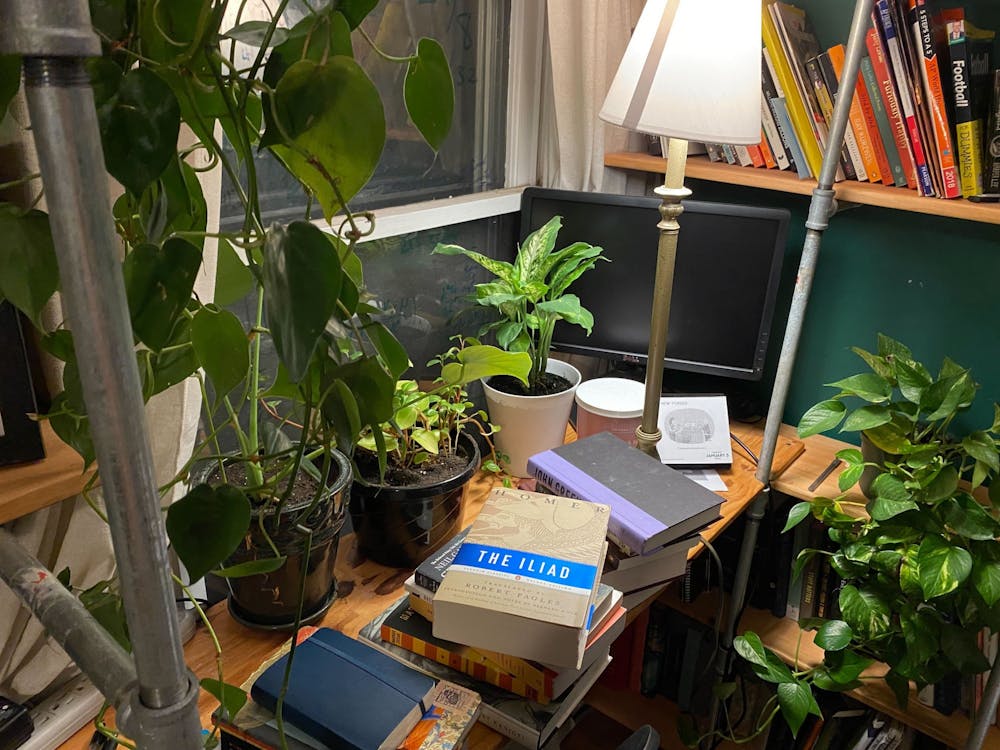I often consider a day’s work and a life’s work to be something different. In your life, you might want to be a senator, or save the world, or write the next great American novel. I have big plans, places to go, a long road ahead. We might feel the things we do each day are productive only if they get us toward some bigger goal.
But individual days are too small to hold big plans. They’re packed tight with little things. I read books, I play basketball. I take a walk, I write a few paragraphs. I shoot the breeze, I pour a drink. I eat my dinner, I clean the bathroom.
These little things can feel like nothing — especially the ones that don’t contribute to any long-term plans. They don’t feel productive. They are just what we do.
But these “just what we dos” that make up our days are productive. They produce our life. They are our life. There will never be one fine morning where we find that we have achieved our wildest dreams. Annie Dillard in her great book “The Writing Life,” wrote, “How we spend our days, of course, is how we spend our lives.” Life is made up of days — a life’s work is a day’s work.
This isn’t to say you shouldn’t chase your big goals. But you have to do that chasing carefully, gingerly. Productivity, as we usually think of it, is dangerous. Left untreated, productivity as we know it is a crushing sickness.
Productivity is a destructive goal, until you realize that your own health and happiness is something you can produce. That is the central problem of productivity — that we categorize taking care of ourselves among our “unproductive” actions. Thinking this way can destroy you: it destroyed me, as I’ve written before in my defense of doing less.
Without this caveat, productivity leads us toward a tired, sad life. Productivity is a destructive goal unless and until you recognize that your own health and happiness is something you produce.
This semester, think about what you produce. You produce papers and problem sets, of course, but you also produce knowledge and an ability for empathy. You produce the unexplainable worth of paying attention to the world. You produce a smile on your mother’s face. You produce a floor that’s swept and mopped, on a good day. You produce quiet in your soul and loudness in the room. You produce a thesis, and you produce a healthy body.

So how to be productive? Pay attention to what you produce each day. How we spend our days is how we spend our lives, so each day choose carefully to produce what you find most valuable. Then, if you feel like you’ve chosen right — that you have produced your own joy, among other things — you will be productive.
In 1964, Philip Larkin published a short poem called “Days.” It begins,
What are days for?
Days are where we live.

They come, they wake us
Time and time over.
They are to be happy in:
Where can we live but days?
Between the first day of classes on Jan. 24 and Dean’s Date on May 3, this semester will last exactly 100 days. If you have a good, long life, you might have 30,000 days to live (around 82 years).
In the end, to ask how to be productive is to ask how you want to spend your days. Days are where we live. And, if we are to believe Annie Dillard, to ask how you want to spend your days is to ask, in Mary Oliver’s words, “what is it you plan to do with your one wild and precious life.”
I can’t answer that question for you — but to ask how to be productive is to ask that question. What do you want to produce? Do you want to produce marginal utility under the capitalistic system? Do you want to produce your own happiness, or the happiness of friends and family? Do you want to change the world? Or do you want to be changed by the world around you?
The end of Larkin’s poem understands this problem. Asking “Where can we live but days,” he continues,
Ah, solving that question
Brings the priest and the doctor
In their long coats
Running over the field.
I am not a priest nor a doctor. I do not know how to be productive. But I know that I have only a hundred days this semester, and perhaps thirty thousand days in all. And I know that I can live nowhere else but days — they are my life. They are to be happy in. To be productive is to choose intentionally how to spend your days. To be productive is all in a day’s work.
Gabriel Robare is the co-Head Puzzles Editor. He is also a Senior Prospect Writer and a News Staff Writer. He can be reached at grobare@princeton.edu or on social at @gabrielrobare.
Self essays at The Prospect give our writers and guest contributors the opportunity to share their perspectives. This essay reflects the views and lived experiences of the author. If you would like to submit a Self essay, contact us at prospect@dailyprincetonian.com.








